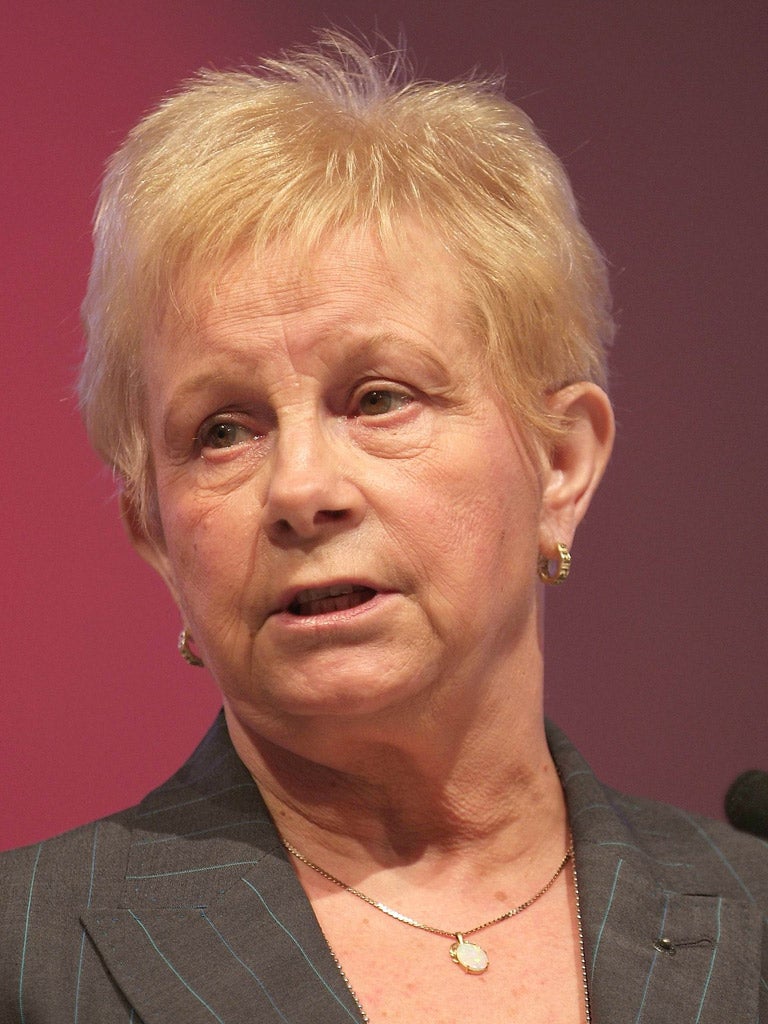
Marge Carey started her working life checking football pools coupons for Vernons in Liverpool but her rise to prominence in the Labour and trade union movement owed more to hard work than luck. After many years as a shop steward representing low-paid workers she rose to become both one of the few women officials in a union where the senior posts were dominated by men, and one of the leading figures in the Labour Party. The former Prime Minister Tony Blair said of her, "She was a wonderful woman full of strongly expressed common sense, goodwill and good judgement."
Margery Williams was born in Middlesbrough in 1938; her father was a stage manager, her mother a dancer. The family moved to Liverpool when her father became a GPO telephone engineer; the family had little money.
Educated at secondary school in Huyton, like many of the young women around her, she left at the age of 15, eventually becoming a pools clerk at Vernons, checking coupons. Pools were big business with Vernons and Littlewoods leading the way in employing many young women in the North-west. Conditions and pay were poor, with Vernons having a particularly badreputation for the dismal way it treated its staff. A small, feisty woman, Marge, always quick to hit out at injustice and bad conditions, began toplay an active part in her local trade union, becoming shop steward, a post in which she fought to get better terms for her colleagues.
If she saw something wrong she was quick to react, earning the admiration and respect not only of the workers but also of the officials of the Union of Shop, Distributive and Allied Workers. In 1978 she was appointed to the North Western Divisional Office, where she became divisional organiser, one of only two women officials. In 1990 she was promoted to Divisional Officer.
Although the membership of USDAW had a high percentage of women members, most of its officials were men. Carey always believed that her role was to represent everyone, a belief that won her the respect of all those who worked with her. She broke new ground for women in USDAW, encouraging others to follow her lead. Charismatic and strong-minded, she quickly built a reputation for never giving up, always looking for the next thing to improve the rights for those she represented.
She kept her close connections with her former colleagues at Vernons and with other workers on the shop floor, being able to empathise and identify with their problems. She returned to lead the fight on behalf of pools workers as they fought unsuccessfully against the introduction of the National Lottery. Her warning of thousands of job losses proved to be true: the work forces at Vernons and Littlewoods were cut back in the first year.
John Hannett, General Secretary of USDAW, recalled of her, "Marge was an unwavering and doughty fighter for workers' rights who never lost touch with her members on the shop floor and was an inspiration for many women in the Labour movement. She never lost sight of her roots, always put her members first."
A workaholic, she worked long hours, often forgoing holidays, encouraging members to get ahead and always being there to help them. She had married Gordon Carey, an engineer, at 19 and raised a young family. Her trade union instincts also applied to them, as her son Vic found out when he bought a firm in Singapore from his former employers, a multi-national: "She insisted that the terms and conditions for staff would be the same as they were previously. She gave us a great upbringing, despite being busy she always had time for us and that never changed."
In 1997 she became only the second woman President of the Union, and was re-elected twice, holding the position for nine years. Her friend, the former General Secretary of USDAW, Bill Connor, recalled her progress through the ranks: "I remember her as a bolshie shop steward at Vernons, and finally her election as president. She was highly regarded throughout the Labour Movement: a champion for women's rights without being a 'tick-box feminist'."
She was a member of the TUC General Council from 1998 to 2006 and sat on the Labour Party's influential Conference Arrangements Committee, responsible for shaping the discussions which would form the party's strategy. In 1998 she was appointed MBE for her services to industrial relations. She died after a two-year battle with motor neurone disease, still fighting to help others by raising over £2,000 last year for the Merseyside branch of the Motor Neurone Disease Association.
Peta Steel
Margery Williams, trade unionist: born Middlesbrough 14 October 1938; MBE 1998; married 1958 Gordon Carey (died 2007; one son, one daughter); died Liverpool 23 January 2012.
Subscribe to Independent Premium to bookmark this article
Want to bookmark your favourite articles and stories to read or reference later? Start your Independent Premium subscription today.

Join our commenting forum
Join thought-provoking conversations, follow other Independent readers and see their replies